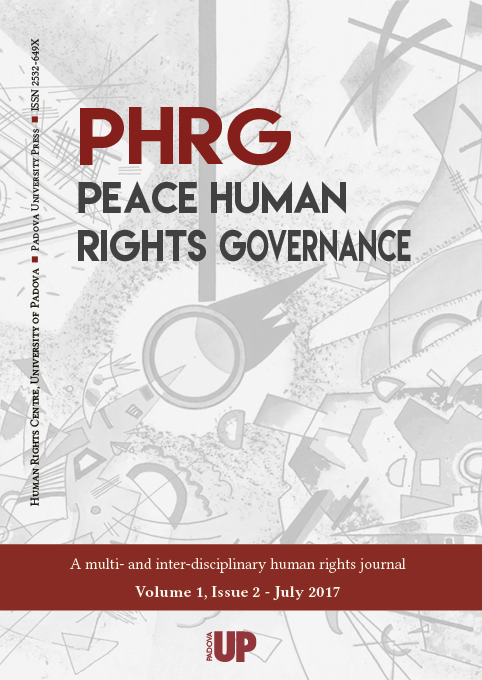Raccolte

Implementing the Human Right to Take Part in Cultural Life: Trends and Perspectives of Inclusive Cultural Empowerment
- Sito internet
- Peace Human Rights Governance 1(2)
- Tipologia pubblicazione
- Articolo / Saggio
- Pagine
- 169-193
- Lingua
- EN
In recent international policy documents and initiatives, cultural rights are recognized as crucial drivers and enablers of developmental processes. However, the lack of clarity as far as their contents is concerned has prevented a rigorous identification of the positive obligations connected with their implementation. In order to contribute to this debate, the present work proposes a model of analysis for investigating the implementation of the human right to take part in cultural life (article 15 (1) (a) of ICESCR) in national cultural policies. The proposed model adopts a ‘capabilities approach’ to the analysis of human rights and refers to a ‘tripartite’ understanding of the participation in cultural life. It includes the ‘freedom’, the ‘access’ and the ‘contribution’ aspect of cultural production and reception and conceptualizes a further dimension dealing with the ‘inclusive cultural empowerment’ of people. The model has been applied for analysing eighteen State reports submitted to the latest sessions of the Committee on Economic, Social and Cultural Rights (55th, 56th, 57th and 58th). On the one hand, the analysis sketches the emergence of specific national, continental and global trends for what concerns the understanding and the implementation of this right, distinguishing between (1) ‘Pro-tangible heritage’ and ‘Pro-intangible heritage’ States, (2) ‘Pro-education’ and ‘Pro-democratization’ States and (3) ‘Intercultural’ and ‘Participatory’ ones. On the other hand, it underlines that, while several efforts are realised at national level for promoting ‘access’ and ‘contribution’, the poor realisation of the ‘empowering’ dimension of culture endangers its full contribution to developmental processes.

